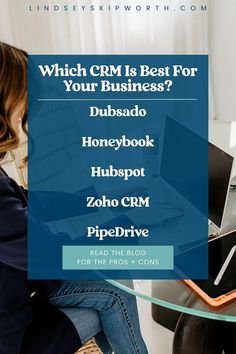The Ultimate Guide: What is CRM and How Can It Optimize Your Business?
What is CRM?
Definition of CRM
Customer Relationship Management (CRM) refers to the technology, strategies, and practices businesses use to manage and analyze customer interactions throughout the customer lifecycle. The ultimate goal of CRM is to improve customer service, foster relationships, and boost sales growth.
Key Components of CRM
- Technology: Software that automates and manages customer interactions.
- Processes: Structured workflows that streamline customer management tasks.
- People: Employees who utilize CRM tools to improve customer engagement.
Types of CRM
CRM systems can be categorized into three main types:
- Operational CRM: Focuses on automating sales, marketing, and service processes.
- Analytical CRM: Analyzes customer data to improve decision-making.
- Collaborative CRM: Enhances communication between different business departments.
How Does CRM Work?
CRM systems consolidate customer information into a centralized database, providing a holistic view of each customer. This enables businesses to:
- Track customer interactions across multiple channels (email, social media, phone, etc.).
- Automate repetitive tasks such as sending follow-up emails.
- Generate actionable insights through data analytics.
For example, a CRM system can alert sales teams when a lead becomes active or recommend upselling opportunities based on previous purchases.
Benefits of CRM for Businesses
1. Improved Customer Relationships
CRM helps businesses nurture relationships by personalizing interactions based on customer data.
2. Increased Sales and Revenue
With features like lead tracking and sales automation, CRM ensures that no opportunity slips through the cracks.
3. Enhanced Customer Retention
By analyzing customer behavior and preferences, businesses can proactively address issues and improve satisfaction.
4. Better Collaboration Across Teams
Collaborative CRM tools facilitate seamless communication between departments, ensuring a unified customer experience.
5. Data-Driven Decision Making
CRM analytics empower businesses to make informed decisions based on real-time data.
How to Choose the Right CRM for Your Business
Identify Your Business Needs
- What are your primary goals (e.g., increasing sales, improving customer service)?
- What features are essential for your team (e.g., automation, analytics)?
Evaluate CRM Features
Look for features like:
- Contact management
- Sales pipeline visualization
- Marketing automation
- Reporting and analytics
Consider Scalability and Integration
Ensure that the CRM system can grow with your business and integrate with existing tools such as email platforms or accounting software.
Popular CRM Tools
- Salesforce: Known for its robust features and scalability.
- HubSpot CRM: Offers free plans with excellent marketing integrations.
- Zoho CRM: Affordable and user-friendly.
Steps to Optimize Your Business Using CRM
1. Centralize Customer Data
Consolidate all customer information in one place to create a unified view of your customers.
2. Automate Routine Tasks
Use CRM’s automation features to save time and reduce manual errors.
3. Personalize Customer Interactions
Leverage customer insights to tailor your communication and offers.
4. Monitor Performance Metrics
Track KPIs such as customer retention rate and sales growth using CRM analytics.
5. Train Your Team
Ensure that all employees understand how to use the CRM effectively.
Common Challenges with CRM and How to Overcome Them
Challenge 1: User Adoption
Solution: Provide comprehensive training and highlight the benefits of CRM to your team.
Challenge 2: Data Management
Solution: Implement strict data entry protocols and regularly clean up the database.
Challenge 3: Integration Issues
Solution: Choose CRM software that integrates seamlessly with your existing tools.
FAQ: Common Questions About CRM
What does a CRM system do?
A CRM system helps businesses manage customer data, automate processes, and analyze interactions to improve relationships and drive growth.
Can small businesses benefit from CRM?
Absolutely! CRM systems like HubSpot and Zoho are specifically designed to meet the needs of small businesses.
How much does a CRM system cost?
Prices vary depending on the features and scale. Many CRM tools offer free plans or trials for small businesses.
Is CRM only for sales teams?
No, CRM benefits multiple departments, including marketing, customer service, and support teams.
CRM is a game-changing tool for businesses looking to improve customer relationships, streamline operations, and drive growth. By choosing the right CRM system and implementing it effectively, you can unlock its full potential and set your business up for long-term success. Whether you’re a small business owner or leading a large enterprise, CRM has something valuable to offer.
Start exploring CRM today and take the first step towards optimizing your business!
